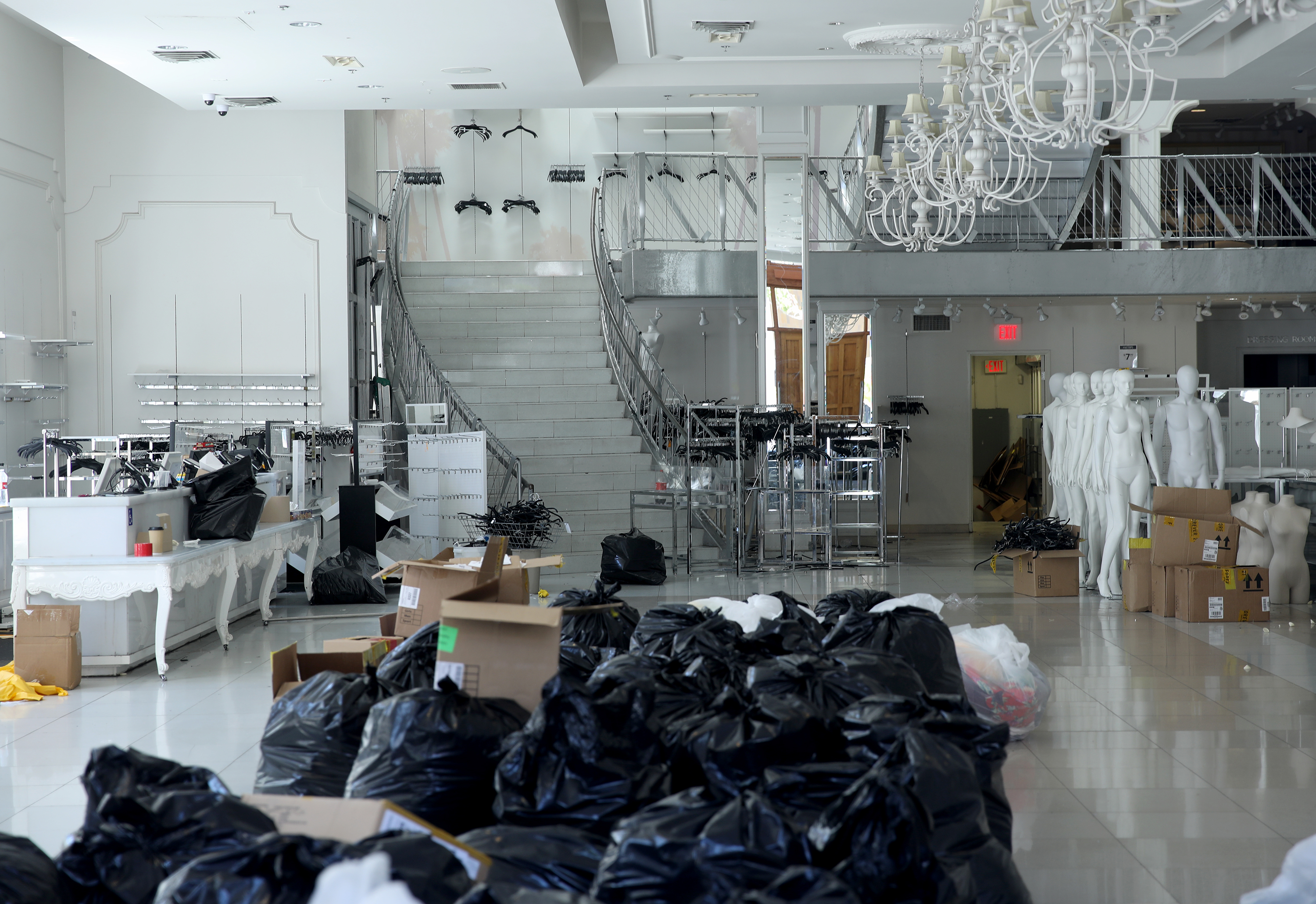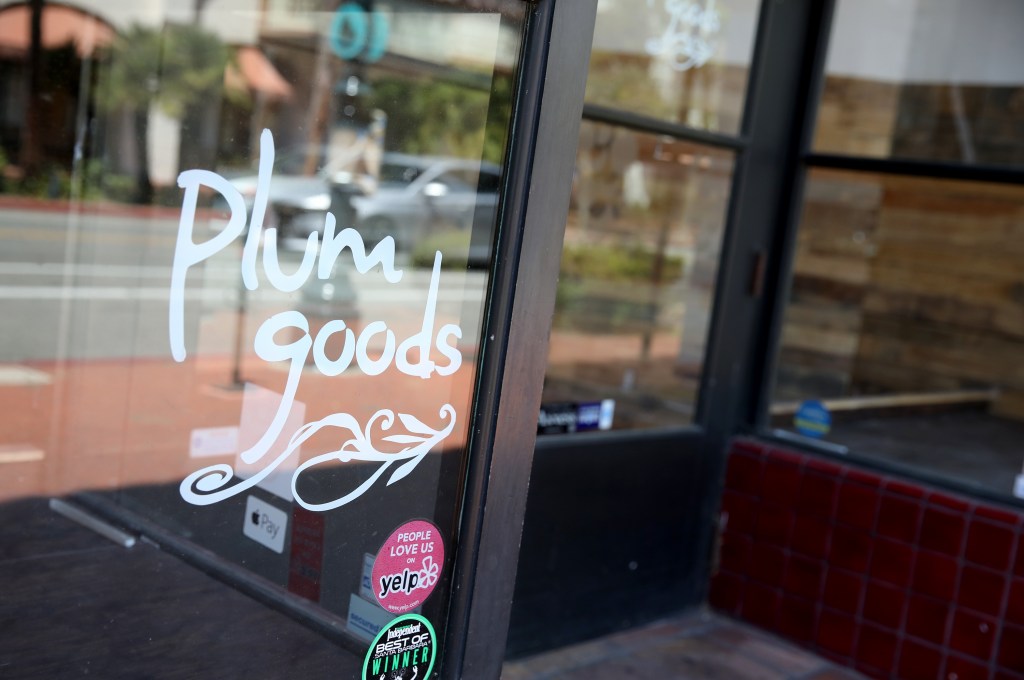State Street Already Slipping Down COVID-19 Slope
Plum Goods and Forever 21 Call It Quits

Two big holes opened downtown this week with the departure of Plum Goods and Forever 21, both brought down by the commerce-killing power of the coronavirus. Their closures could constitute grim harbingers of things to come as Santa Barbara’s retail core — already beset with a high number of vacancies and a business community highly frustrated by lack of city leadership — attempts to weather the ongoing health crisis.
Amy Cooper opened Plum Goods 10 years ago on the 900 block of State Street and quickly established it as one of the few and one of the best locally owned stores that carried locally sourced merchandise, from artwork to jewelry to books to postcards. Cooper herself would also become one of the leading voices for downtown retail interests, pushing City Hall to help — or at least not hinder — business owners navigating Santa Barbara’s notoriously stingy and expensive permitting process.

Cooper said she saw the writing on the wall not long after she shut her doors on March 13 to comply with Governor Gavin Newsom’s lockdown order. “There was no way I could operate on such low margins,” she said. “My store was dependent on tourism, which stopped, and experiential shopping, which stopped.” Cooper also said Plum Goods, like many other retailers, relies heavily on a busy fourth-quarter shopping season, and she worried the state might be back under quarantine by that time.
Cooper’s Instagram feed, where she made her announcement, quickly filled with hundreds of comments from customers wishing her well and notes of gratitude from artists and craftspeople who got their start in her space. Cooper is selling off her remaining product through her website and offering free delivery. She spent Tuesday making the drop-offs herself. As she considers her next move, Cooper said she’ll stay active on the mayor’s newly formed Business Advisory Team. And she hopes to somehow keep the Plum Goods name going, either by going entirely digital or organizing pop-ups. “I would like to see Plum Goods alive,” she said.

Meanwhile, on the 900 block of State Street, where eight storefronts now sit empty, the lobby of the two-story Forever 21 building is piled high with bulging trash bags and naked mannequins. Calls to the national chain’s corporate office were not returned, but recent discussions at City Hall hint at what the large retail footprint could someday become.
Entrepreneur Teddy Cabugos spoke to the City Council two weeks ago and outlined in broad terms a plan to turn the building owned by Ray Mahboob, a powerhouse of downtown real estate, into a one-stop shop for cannabis cultivation and consumption with an accompanying museum dedicated to the psychoactive crop. By keeping sales of products limited to patrons or members, Cabugos explained, the project would not qualify as a dispensary, thus avoiding any potential conflict with the city’s cannabis dispensary ordinance. Cabugos and Mahboob have been making the rounds and speaking individually with councilmembers, some of whom are apparently open to the idea.

The concept is bound to spark some controversy, but according to the latest quarterly report from Hayes Commercial, State Street will need all the help it can get in the coming months and years. California’s unemployment rate spiked to 22 percent by mid-April, the report states, and Santa Barbara County has reportedly lost 22,000 jobs. The California Restaurant Association estimated that up to 30 percent of restaurants may not reopen when dine-in restrictions are lifted, it noted. Before the pandemic hit, there were 941 restaurants in Santa Barbara County that employed approximately 18,000 people.
With the exception of Zoom, which has an office downtown, nearly all other commercial tenants in the area have suffered “an immediate (and often profound) loss of revenue,” the Hayes report says. “Some landlords proactively deferred rent for April and are negotiating with tenants various forms of relief in the short-term. In turn, banks have deferred some portion of landlords’ mortgage payments on a case-by-case basis.”
In a glimmer of good news, Downtown Santa Barbara, which recently lost its director in the midst of the pandemic, has already named a new interim director. Robin Elander spent the last five years leading the Summer Solstice Celebration and has worked with both the Impact Hub (now KIVA SB) and the Fund for Santa Barbara. “It’s going to take us all working together to recover, innovate, and grow in these unprecedented circumstances,” she said. “Let’s get the conversations started and make some downtown magic happen.”
Nick Welsh contributed to this report.
At the Santa Barbara Independent, our staff continues to cover every aspect of the COVID-19 pandemic. Support the important work we do by making a




You must be logged in to post a comment.